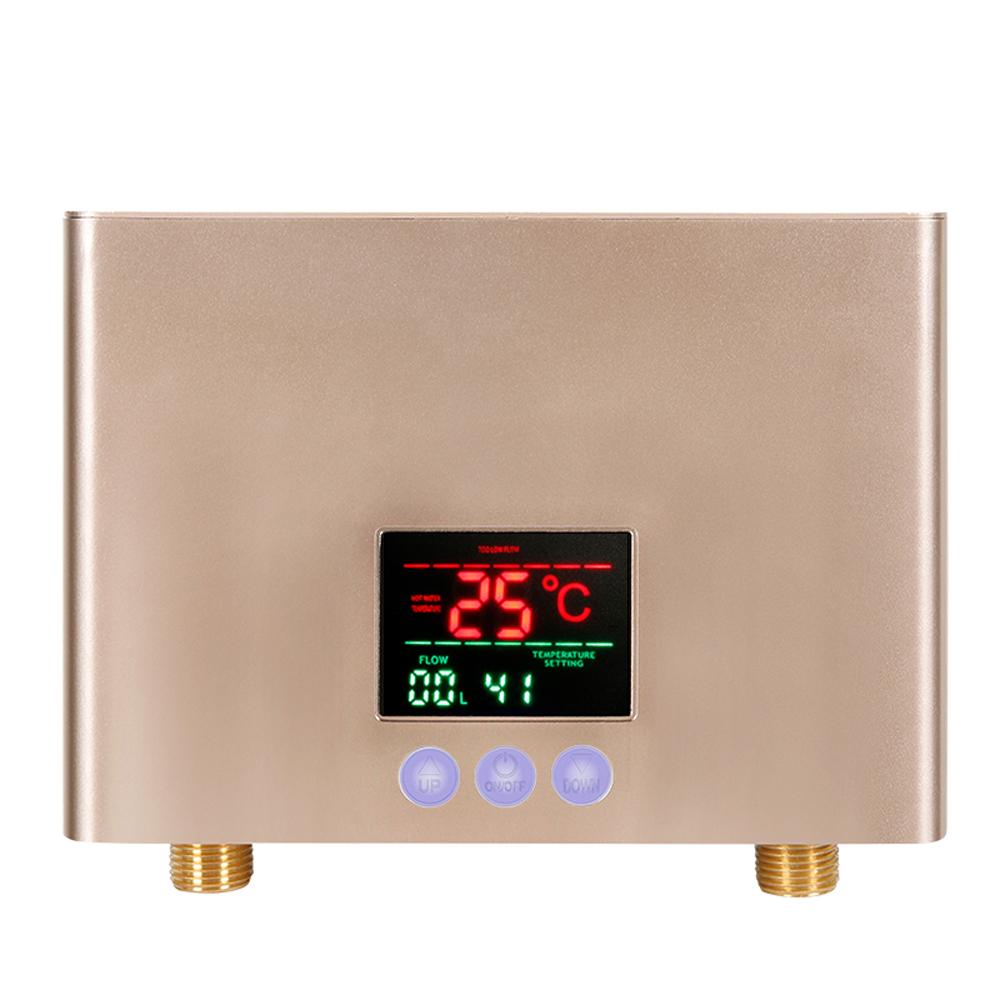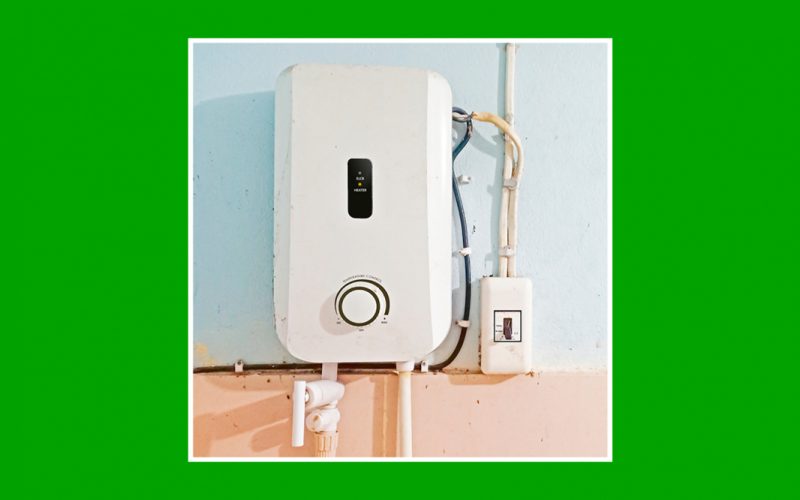An instant water heater, also known as a tankless water heater, provides hot water on demand without the need for a storage tank. This modern appliance has become increasingly popular due to its energy efficiency and convenience. In this article, we will explore how an instant water heater functions, the situations in which it is most beneficial, and the precautions to keep in mind during its use.
How an instant water heater works
Understanding the functioning of an instant water heater is crucial for appreciating its benefits. Unlike traditional water heaters that store and continuously heat a large tank of water, an instant water heater heats water only when needed. Here’s a breakdown of its operation:
- Activation: When a hot water tap is turned on, cold water travels through a pipe into the unit.
- Heating: An electric element or gas burner heats the water as it passes through the unit.
- Delivery: Hot water is delivered directly to the faucet without the need for a storage tank.
This process ensures that hot water is available almost immediately and for as long as the tap remains open. The absence of a tank means that there is no standby energy loss, which is common with traditional water heaters.
When an instant water heater is convenient
The instant water heater is particularly convenient in several scenarios, making it a suitable choice for many households and applications:
- Energy efficiency: For homes looking to reduce energy consumption, instant water heaters are an excellent choice. They only heat water when it’s needed, avoiding the energy wastage associated with maintaining a tank of hot water.
- Space-saving: Instant water heaters are compact and can be installed in smaller spaces where traditional tank heaters would not fit. This makes them ideal for apartments, small homes, and other areas with limited space.
- Continuous hot water supply: In households with high hot water demand, such as those with multiple bathrooms or large families, an instant water heater can provide a continuous supply of hot water without the risk of running out.
- Point-of-use applications: Instant water heaters can be installed close to the point of use, such as under a sink or next to a shower. This minimizes heat loss and reduces the time it takes for hot water to reach the faucet.
- Longevity: With proper maintenance, instant water heaters tend to have a longer lifespan compared to traditional tank heaters, making them a more durable investment.

Precautions to consider when using an instant water heater
While the benefits of an instant water heater are numerous, it is important to observe certain precautions to ensure safe and efficient operation:
- Professional installation: Always have your instant water heater installed by a qualified professional. Incorrect installation can lead to inefficiencies, safety hazards, and potential damage to the unit.
- Adequate ventilation: For gas-powered instant water heaters, ensure proper ventilation to prevent the buildup of harmful gases such as carbon monoxide. Electric units should also be installed in well-ventilated areas to avoid overheating.
- Regular maintenance: Periodic maintenance is essential to keep the instant water heater functioning optimally. This includes checking for mineral buildup, inspecting the heating elements or burners, and ensuring that all connections are secure.
- Temperature settings: Set the water temperature to a safe level to prevent scalding. Most manufacturers recommend a maximum temperature of 120 degrees Fahrenheit (49 degrees Celsius). This also helps in reducing energy consumption.
- Water quality: If your home has hard water, consider installing a water softener. Hard water can cause mineral buildup in the heater, reducing its efficiency and lifespan.
- Electrical safety: For electric models, ensure that the electrical connections are properly grounded and that the unit is protected by a circuit breaker to prevent electrical hazards.
Practical examples of its use
- Residential Use: In a family home with multiple bathrooms, an instant water heater can ensure that everyone gets a hot shower without having to wait for a tank to refill and reheat. This is particularly useful during the morning rush hour.
- Small apartments: For residents of small apartments or studios, the space-saving design of an instant water heater can free up valuable room for other uses. It can be installed in a closet, under a sink, or even in a small cabinet.
- Commercial use: Businesses such as restaurants, hotels, and laundromats benefit from the continuous hot water supply provided by instant water heaters. They can meet high demand without the limitations of a tank-based system.
- Remote locations: Instant water heaters are ideal for cabins, vacation homes, or other remote locations where space and energy efficiency are priorities. They can be powered by electricity or propane, providing flexibility in areas without a natural gas supply.
- Eco-friendly homes: For those building or retrofitting eco-friendly homes, instant water heaters align with energy-efficient and sustainable practices. They contribute to lower energy consumption and reduced greenhouse gas emissions.
Conclusion
The water heater offers a modern solution to the age-old problem of providing hot water efficiently and conveniently. By understanding its functioning, recognizing the scenarios where it is most beneficial, and adhering to essential precautions, homeowners can make informed decisions about incorporating this technology into their daily lives. Whether for residential or commercial use, this artifact stands out as a versatile and energy-efficient option, ensuring that hot water is always available when needed.
Visit: Florida water.

